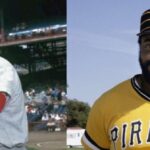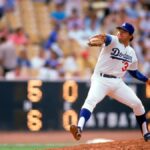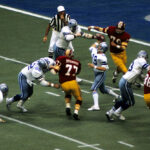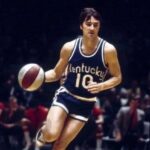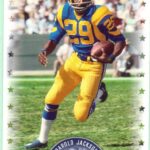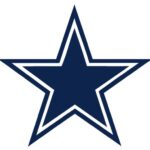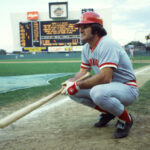Ex-Celtics Coach Doc Rivers Made His Mark On Boston Sports History
The city of Boston seems to developing a pattern of these coach-for-player trades. Prior to baseball season, it was the Red Sox dealing Mike Aviles to Toronto in exchange for the rights to current manager John Farrell. Now it’s the Celtics on the other end of such a transaction, acquiring a 2015 first-round pick from the Los Angeles Clippers in exchange for head coach Doc Rivers.
The long-rumored trade marks the end of another era of the Celtics and the end of a great ride for Doc in Boston. Now that Rivers’ Celtic tenure is in the books, we can start asking questions about where his place is in the pantheon of Boston sports.
Doc Rivers had coached the Orlando Magic for three full seasons prior to arriving in Boston, and his first year in the Hub more or less mirrored what he’d done in Orlando. Boston had a nice year, going 45-37, but lost in the first round of the playoffs. Doc was in a rut where he’d consistently win 40-plus games, but couldn’t get four more in the postseason and move into the second round.
Over the next two seasons, everyone would have gladly taken Rivers’ previous track record. Though it wasn’t his fault, as the Celtic roster was basically reduced to Paul Pierce and four guys from the local gym league and plummeted first to 33-49 and then bottomed out at 24-58.
Actually the gym league crack isn’t fair, because the organization did have Al Jefferson, who would become the key piece to acquire Kevin Garnett, whom the Minnesota Timberwolves were ready to unload. And though players like Rajon Rondo and Kendrick Perkins weren’t yet ready to be contributors, they were at least under development. But as far as legitimate help for Pierce, there was none until the team added Garnett, and then Ray Allen in the summer of 2007.
Now there were big expectations for Celtics basketball, and Rivers began to come into his own as an NBA coach. The Detroit Pistons were still the most respected team in the Eastern Conference, with a championship in 2004, a Finals trip in 2005 and then successive conference finals’ visits. Cleveland had LeBron James and was on the move. And could these new Celtics’ stars all mesh together?
No one succeeds in the NBA without star players taking the lead, but Rivers excelled at creating the atmosphere where Garnett, Allen and Pierce could first come together themselves and then get everyone else to fall in line. While dramatic improvement could have been achieved by a lot of coaches, not every coach could have racked up 66 wins and immediately made the team look championship-worthy.
Doc’s playoff problems nearly bit him, as the Celtics were unexpectedly pushed to seven games in the first round against Atlanta. Then came another seven-game battle with Cleveland, where the Celts survived an epic Pierce vs. LeBron duel on the parquet floor. Most observers felt Boston’s shortcomings, including that of their coach, were coming out at crunch time and now the Pistons were set to exploit them in the conference finals.
When Detroit won Game 1 it looked like the critics were right, but under Doc’s leadership, the team turned it around and not only won the series, but did it by taking two games on the road, including the clinching Game 6. They were again underdogs in the NBA Finals against the ring-studded Phil Jackson and the Los Angeles Lakers. But Boston rolled to a title in six games.
Doc now had a ring, something that inoculates you from a lot of criticism, but I still believe his finest coaching was yet to come. It’s often overlooked that the modern Big Three of Garnett, Allen and Pierce were all past-prime when they came together. Yet Rivers kept the team winning well beyond its expiration date. They won 62 games in 2009 and might have repeated, had Garnett not been hurt for the playoffs.
The 2010 season saw the team slip to 50 wins, but Rivers was a maestro in the postseason. The Celts were a trendy pick to be upset by Miami (one year prior to LeBron and Chris Bosh joining Dwayne Wade) in the first round, the C’s blasted the Heat in five games Boston was given no chance against LeBron’s Cavs, but closed the deal decisively in six. The same went for the conference finals against Dwight Howard’s Orlando Magic. The Celtics got within one win of a surprise title—how many #4 seeds play in Game 7 of the NBA Finals?, until Kendrick Perkins’ blown knee gave the title to Los Angeles.
Doc’s Big Three continued to age, but throughout most of 2011 they looked like they matched up well with Miami. A debatable decision to trade Perkins broke team chemistry and the Celts never really looked the same, though they did sweep New York out of the playoffs.
Then came 2012, when the team was now past the expiration date that was on the expiration date. Yet in a strike year, whose 66-game schedule was so compressed as to make life hard on veteran players, the Celts played their basketball down the stretch to win the Atlantic Division. Then they went on the road and beat Atlanta in six games, in spite of Rondo being suspended for a must-win Game 2. They caught a bracket break when Derrick Rose blew out his knee and eliminated Philadelphia.
With an aging team that was running on fumes, the Celts were surely going to be easy pickings for a hungry Miami Heat team and a Game 1 blowout seemed to confirm that. Then the worm turned. An overtime loss was followed by successive wins at home. Then Boston stunned Miami in Game 5 on the road and got to what would have been as unlikely a Finals appearance as the league has ever seen. Of course it didn’t quite work out—LeBron saved Miami in Game 6, and the Celts lost a well-played and competitive Game 7. But any remaining critics of Doc Rivers’ coaching skills had long since gone to hide under a rock.
Even last season, one that threatened to become lost when Rondo blew out his knee, saw Rivers’ bring some Celtic pride out of his team. On the very day Rondo was hurt, Boston beat Miami on national television. They threw a big scare into New York, winning consecutive elimination games and then nearly rally from twenty down in the fourth quarter of Game 6 before the season finally ended.
Doc’s players never quit on him and in a world of professional sports where that happens all too often, it’s perhaps the finest compliment you can give.
The real question now is this—can Doc make a case to be the #2 coach in the history of the Boston Celtics? Red Auerbach is obviously untouchable at the top, but if you factor in the excellent work Rivers did in continuing to win with a team that most people were ready to break up after the 2009 season, you can at least make the argument. Other candidates would include Bill Russell, Tom Heinsohn, Bill Fitch and K.C. Jones.
Since the discussion is strictly about coaching, I don’t think Russell was on the sideline long enough to be eligible, though his winning an NBA title as player-coach is further evidence of his place in basketball lore. Fitch and Jones had considerably more talent, as the two men who coached Larry Bird in his prime. And that Big Three, including Kevin McHale and Robert Parish, didn’t have a lot of mileage on them when Fitch and Jones coached them. I think Doc had a tougher job and in an era when there is far more parity in the NBA.
I’m at least ready to go to #3—Heinsohn won two titles at a point when the glory years of the Auerbach/Russell era were pretty much ending and how you settle the debate between him and Doc would involve a lot of nuance and era-adjustment.
Wherever you put Doc Rivers in the Celtics’ pantheon, it better be someplace awfully high. He was an integral part of the glory years of Boston sports to start the 21st century. I’m glad he’s going to the Western Conference and to a rival of the Lakers, so it will be easy to keep rooting for him.



